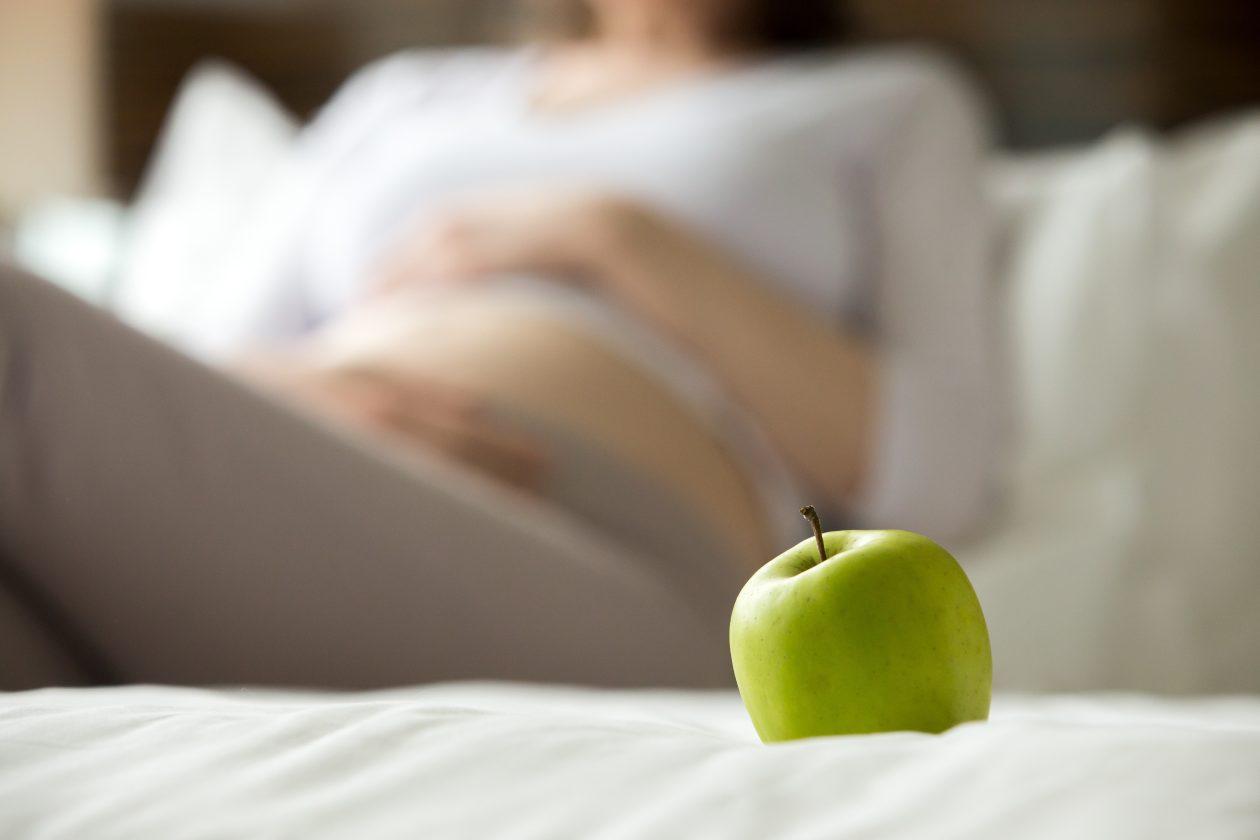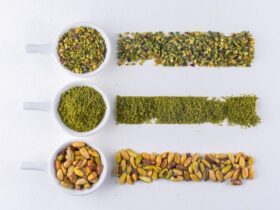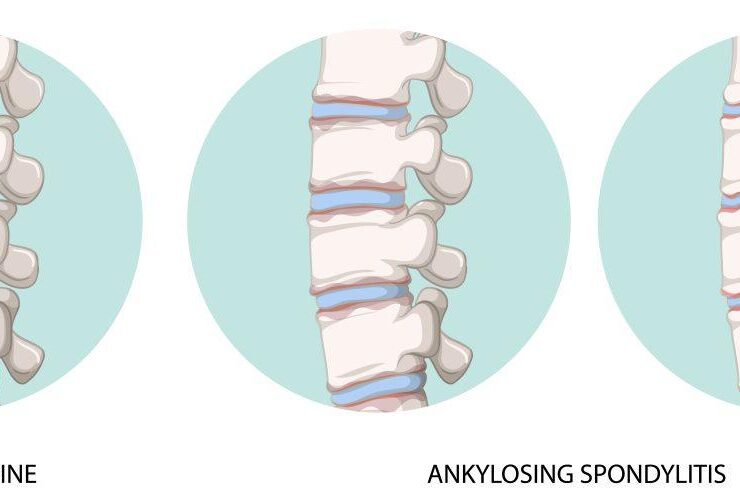Introduction
In contemporary society, fertility has become an increasingly pertinent topic as individuals and couples alike seek to optimize their reproductive health. Several factors significantly influence fertility results, including age, genetics, lifestyle decisions, and environmental factors. However, one area that has received a lot of attention lately is nutrition’s contribution to improving fertility. The diversity of dietary methods and trends has made it critical to comprehend how various diets affect reproductive health.
Of all the diets, the Paleo diet stands out as a compelling ancestral approach that aligns with the concepts of optimal fertility. Based on our Paleolithic ancestors’ eating patterns, the Paleo diet avoids processed carbohydrates, dairy products, and grains in favor of whole, unprocessed foods. Paleo diet proponents contend that by conforming to our evolutionary history, the diet provides a comprehensive strategy for sustaining the body—including the reproductive systems—in a way compatible with our genetic makeup.
In this talk, we will explore the complex field of Paleo nutrition therapy for enhancing fertility. We will discover the unique advantages that this nutritional paradigm provides, investigate the variety of foods that fall within its parameters, and obtain professional advice and valuable hints for incorporating Paleo principles into everyday life to maximize reproductive well-being. By revealing the secrets around the Paleo diet’s possible effects on fertility, we hope to provide people with the information and resources they need to start along the path to improved reproductive health and general well-being.
Understanding Fertility
Fertility, encompassing both the ability to conceive and carry a pregnancy to term successfully, is a multifaceted aspect of reproductive health. Although diet has a significant impact, it’s essential to understand that many other elements outside diet affect fertility. A variety of factors, including hormone balance, genetic predispositions, underlying medical disorders, lifestyle choices, and environmental exposures, influence an individual’s fertility profile. The intricacy of fertility highlights the significance of using a comprehensive strategy that considers many aspects of health and fitness.
In addition to food, several other factors affect the results of conception. Age is a significant factor because fertility decreases with age, especially after the age of 35. Reproductive function can also be impacted by hormonal abnormalities, such as those caused by thyroid problems or polycystic ovarian syndrome (PCOS). Fertility can be further disrupted by lifestyle variables such as smoking, excessive alcohol intake, and stress. Furthermore, environmental exposure to contaminants and poisons might disrupt reproductive processes. They understand how these elements are related, highlighting the significance of thorough fertility assessments and individualized treatments catered to each patient’s needs.
Although several factors affect fertility, nutrition is still critical to reproductive health. Foods high in nutrients supply the building blocks required for sperm health, egg quality, and hormone synthesis. Antioxidant-rich diets, such as those high in fruits and vegetables, enhance reproductive health and help reduce oxidative stress. On the other hand, diets heavy in processed foods, refined sugars, and unhealthy fats can harm fertility by causing inflammation and hormonal imbalances. A nutrient-rich diet can help people conceive more efficiently and maintain better reproductive health.
Paleo Diet and Fertility: Evolutionary Insights
The Paleo diet, often called the “caveman diet,” draws inspiration from our ancestors’ eating patterns during the Paleolithic era. Proponents contend that this dietary strategy, which emphasizes complete, unprocessed foods that our systems are supposedly better evolved to absorb, aligns with our evolutionary biology. By emphasizing foods that early people would have had access to, like lean meats, fish, fruits, vegetables, nuts, and seeds, the Paleo diet takes us back to our ancestral origins to maximize fertility and health.
One of the central tenets of the Paleo diet is prioritizing nutrient-dense foods that offer the vital vitamins, minerals, and antioxidants required for reproductive health. Proponents of the Paleo diet seek to enhance fertility by guaranteeing sufficient consumption of essential nutrients by integrating an assortment of vibrant fruits and vegetables, lean proteins, and healthy fats. Research has linked antioxidant-rich diets to reduced oxidative stress and improved reproductive results in both men and women.
To support general health and hormone stability, the Paleo diet strongly emphasizes consuming a balanced quantity of macronutrients, such as protein, lipids, and carbohydrates. The diet’s supporters stress the significance of selecting high-quality sources even though some may think it’s excessive in fat and protein. Essential amino acids and good fats are found in lean meats, fatty fish, nuts, and seeds; carbs are found in fruits and vegetables and offer energy. The Paleo diet promotes hormonal balance and metabolic health, boosting fertility by finding a balance between these macronutrients.
Since blood sugar abnormalities can affect hormone levels and reproductive function, blood sugar management is essential for fertility. The Paleo diet emphasizes whole, unprocessed foods and avoids refined sugars and grains, which may help stabilize blood sugar levels and improve conception results. The Paleo diet offers a dietary paradigm that optimizes fertility by emphasizing low-glycemic index foods that encourage progressive blood sugar release. This approach tries to establish stable foundations for reproductive health.
Optimizing Fertility: Harnessing Paleo Benefits
Nutrition is a significant factor in fertility, and the Paleo diet provides various nutrients vital for reproductive health. Paleo supporters promote a diet high in vitamins, minerals, and antioxidants that is high in nutrients. These ingredients are thought to fight oxidative stress, which is linked to infertility. Essential minerals such as zinc, abundant in lean meats and nuts, are necessary for hormone management and sperm production. Folate, found in leafy greens, helps women’s embryonic growth. The Paleo diet seeks to optimize fertility by placing a high priority on these powerful nutrients.
Many items on the Paleo diet benefit fertility, giving people a wide range of options for what to put into their bodies. Paleo-approved foods offer a comprehensive approach to enhancing fertility, ranging from omega-3-rich seafood and lean proteins to colorful fruits and vegetables loaded with antioxidants. Rich in fertility-enhancing folate, leafy greens like spinach and kale complement nutrient-dense foods like grass-fed beef and wild-caught fish. Paleo diet supporters aim to encourage healthy reproductive function and fortify their bodies by consuming these nutrient-rich foods.
A revolutionary step in improving fertility can be taking the Paleo diet’s tenets into everyday life. Whenever feasible, source high-quality, organic ingredients; plan meals to ensure a balanced intake of macronutrients; and try various dishes to make meals exciting and fulfilling. Furthermore, mindful eating techniques that emphasize enjoying every mouthful and paying attention to hunger signals can strengthen the bond between a person and food and enhance general well-being. By adopting these valuable suggestions and incorporating Paleo principles into their daily lives, people can set off on a path to improved fertility and general health.
Holistic Fertility Enhancement: Beyond the Plate
In the quest for fertility optimization, addressing the mind-body connection is paramount. Work-related stress, as well as stress from relationships and lifestyle choices, can all have a significant impact on reproductive health. Excessive amounts of stress chemicals, such as cortisol, can throw off the hormonal balance, preventing women from ovulating and men from producing sperm. By practicing stress-reduction strategies like yoga, meditation, and mindfulness, people can develop a sense of balance and tranquility that promotes fertility. People who prioritize their mental health in addition to food considerations can adopt a comprehensive strategy for improving fertility.
An additional essential element of the comprehensive strategy for enhancing fertility is physical activity. Frequent exercise is vital to maximizing reproductive function and promoting general health. Walking, swimming, and cycling are examples of moderate-intensity exercises that can help control hormone levels, promote mood, and improve circulation—all of which are important for reproductive health. Striking a balance is crucial, as rigorous training regimens or excessive activity can negatively impact fertility. People can benefit from the many advantages of an active lifestyle and help their fertility journey by including mindful movement into their daily routines.
The environment, which includes being around chemicals and pollutants, can have a significant impact on fertility. Commonplace products, including plastics, insecticides, and personal hygiene products, include endocrine-disrupting chemicals that might interfere with reproductive hormones and potentially affect fertility in both men and women. Reproductive health can be protected by proactively reducing exposure to these poisons. Some examples of proactive measures include choosing organic vegetables, using non-toxic household cleaners, and avoiding plastic food containers. People can effectively manage potential hazards and support their reproductive goals by developing a conscious awareness of their surroundings and making well-informed decisions.
Tailoring Paleo for Personal Fertility Needs
Understanding that each individual is unique is crucial when embarking on the Paleo journey for fertility enhancement—various factors, including heredity, metabolism, and lifestyle decisions, influence linfluencerson’s reaction to dietary changes. Although the Paleo diet offers a basic framework, it is critical to acknowledge bio-individuality and modify the strategy appropriately. While some people may benefit from a more stringent Paleo diet, others may benefit from including non-Paleo items more suited to their dietary requirements and genetic makeup. People can effectively enhance their reproductive outcomes by customizing their nutritional strategy and recognizing and embracing their bio-individuality.
Expert help is often necessary when navigating the complications of fertility and nutritional choices. Seeking advice from medical experts, such as nutritionists, registered dietitians, or reproductive specialists, can yield priceless information customized to each person’s need. These experts can provide tailored advice depending on current medical issues, dietary inadequacies, and particular reproductive objectives. Expert advice guarantees a comprehensive and evidence-based approach to fertility optimization within the Paleo paradigm, whether correcting nutrient deficiencies, adjusting meal plans, or tracking results.
Although the Paleo diet has many fertility-supportive benefits, optimizing its effectiveness requires adaptation. Experimenting with food selections, meal timing, and portion sizes to suit personal requirements and tastes is part of fine-tuning the Paleo approach. Lean proteins, healthy fats, and a variety of vibrant fruits and vegetables are just a few examples of nutrient-dense foods that can be included to supply vital vitamins, minerals, and antioxidants essential for reproductive health. Furthermore, keeping an eye on critical reproductive indicators like ovulation, menstrual cycles, and general health enables people to modify their food plans as necessary, promoting a customized and long-lasting approach to fertility improvement.
Diverse Paths to Fertility: Alternative Approaches
While the Paleo diet offers one avenue for fertility enhancement, exploring alternative dietary paths can provide valuable insights into fertility optimization. For example, veganism discourages the consumption of animal products while emphasizing plant-based diets. According to research, there are several health advantages to following a well-planned vegan diet high in fruits, vegetables, whole grains, and legumes, including better weight control and heart health. However, because veganism may reduce certain nutrients, primarily those vital for reproductive health, like vitamin B12, iron, zinc, and omega-3 fatty acids, questions have been raised about how this can affect reproductive health. To fully comprehend the possible effects of veganism on fertility, dietary balance, supplementation, and nutrient intake must all be carefully considered.
Another effective strategy for enhancing fertility is the Mediterranean diet, defined by its concentration on whole grains, fruits, vegetables, olive oil, and moderate amounts of fish and chicken. The Mediterranean diet, high in antioxidants, heart-healthy fats, and vital minerals, has been linked to several health advantages, including lowered inflammation and enhanced cardiovascular function. Additionally, research has indicated a favorable relationship between enhanced male and female reproductive outcomes and Mediterranean diet adherence. People who want to increase their fertility can support reproductive wellness and enjoy a wide variety of tasty, nutrient-rich foods by adopting the Mediterranean dietary pattern.
Realizing that there is no one-size-fits-all diet, many people can create a customized fertility optimization strategy by incorporating components of several dietary traditions. By integrating concepts from several diets, like the Mediterranean, veganism, and Paleo, people can build a personalized strategy that suits their nutritional requirements, tastes, and well-being objectives. This integrative strategy guarantees sufficient nutrient intake and reproductive support while permitting flexibility and creativity in dietary choices. Seeking advice from medical specialists or registered dietitians can be very beneficial when creating a personalized integrative food plan that promotes overall fertility optimization.
Conclusion
In conclusion, the Paleo diet offers a compelling approach to fertility enhancement by emphasizing whole, unprocessed foods that align with our evolutionary heritage. People can promote and maximize fertility by prioritizing nutrient-dense diets high in vital vitamins, minerals, and healthy fats. Reducing inflammation, promoting hormonal balance, and avoiding processed foods and refined carbohydrates are all essential aspects of the Paleo diet that can help with blood sugar regulation, inflammation reduction, and fertility. By providing the body with the nutrition it requires to survive, the Paleo paradigm offers the possibility of optimizing fertility via its ancestral lens.
Accepting the path toward improved fertility necessitates making educated decisions and taking a comprehensive approach to wellness. Although the Paleo diet provides insightful information about optimizing fertility, it’s essential to acknowledge that every person’s journey is different. We can take control of our reproductive health by keeping up with the most recent research, speaking with medical experts, and listening to our bodies. The secret is to be proactive in improving fertility, whether incorporating lifestyle changes, investigating other nutritional options, or implementing portions of the Paleo diet.
To achieve reproductive wellness, one must develop a lifestyle that promotes general health and well-being and adhere to a diet. I want to challenge you to start implementing evidence-based lifestyle and food choices that encourage fertility right now. Remember that minor adjustments can result in significant gains in reproductive health, regardless of whether you decide to investigate the Paleo diet or other dietary customs. Together, let’s enable people to make deliberate choices that put reproductive health first and open the door to a healthy generation to come.
References
Foods That Can Affect Fertility. (2020). Retrieved April 18, 2023, from Eatright.org website: https://www.eatright.org/health/pregnancy/fertility-and-reproduction/fertility-foods
Paleo diet: Eat like a hunter-gatherer and lose weight. (2022). Retrieved April 18, 2023, from Mayo Clinic website: https://www.mayoclinic.org/healthy-lifestyle/nutrition-and-healthy-eating/in-depth/paleo-diet/art-20111182
https://www.facebook.com/parents. (2013). Fertility Diet: What to Eat When Trying to Get Pregnant. Retrieved April 18, 2023, from Parents website: https://www.parents.com/getting-pregnant/fertility/what-to-eat-to-get-pregnant/
Five lifestyle choices that can affect a woman’s fertility. (2022). Retrieved April 18, 2023, from Mayo Clinic website: https://www.mayoclinic.org/healthy-lifestyle/getting-pregnant/in-depth/female-fertility/art-20045887
Shmerling, R. H., & Shmerling, A. (2018, May 31). Fertility and diet: Is there a connection? – Harvard Health. Retrieved April 18, 2023, from Harvard Health website: https://www.health.harvard.edu/blog/fertility-and-diet-is-there-a-connection-2018053113949
Wikipedia Contributors. (2023, April 7). Fertility. Retrieved April 18, 2023, from Wikipedia website: https://en.wikipedia.org/wiki/Fertility
Was this helpful?

Joseph Emb, RDN
Founder of StyleVitally.com | Registered Dietitian & Wellness Advocate
What I Cover:
I’m passionate about connecting nutrition science and everyday wellness to help people live healthier, more vibrant lives. I write about evidence-based nutrition, mindful eating, sustainable lifestyles, and holistic well-being at StyleVitally.com.
My Background:
The University of Texas in Austin, where I earned my Dietetics diploma, laid the groundwork for my nutrition and health career. My training and hands-on experience taught me the science and art of using nutrition to enhance health and well-being.
Professional Journey:
I’m an RDN with lots of experience. I’ve helped people seeking tailored nutritional recommendations in clinical settings and community outreach programs. My constant learning and professional development ensure that my recommendations are always based on the latest evidence.
Ethical Commitment:
My practice prioritizes integrity. My content is transparent and objective, following the most significant ethical standards. I can give my audience unbiased advice because I’m not affiliated with food businesses or industry associations. I want to help people make informed health decisions that match their values and ambitions.
Join Me on the Wellness Journey:
Join me on the path to vitality and well-being, whether facing nutritional issues, seeking sustainable lifestyle changes, or simply wanting a better, happier you. We’ll discover how diet, mindfulness, and holistic well-being can maximize your potential.






